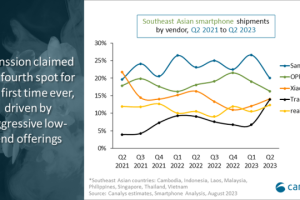With the agenda of “Transform, Energize and Clean India’ with the intention of Sabka Saath, Sabka Vikas” , Budget 2017, presented by FM Arun Jaitley clearly mentioned that this is an inclusive budget which is pro-poor, pro-farmer, pro-downtrodden and for the development of all the sectors and the country at large.
The budget estimates for health show an appreciable increase of more than 27%. From Rs. 37061.55 cr in 2016-17, the budget estimate for 2017-18 has been increased to Rs. 47352.51 cr (Net).
Ministry will also create 5000 Post Graduate seats per annum to ensure adequate availability of specialist doctors to strengthen secondary and tertiary levels of healthcare. Furthermore, two new AIIMS will be set up in Jharkhand and Gujarat.
While many liked the announcement on dealing with the skill availability in the form of specialist doctors, however again the quantum is too small for a country of India’s size given that the finance minister said the move was to ensure adequate availability of specialist doctors to strengthen secondary and tertiary levels of healthcare.
Health Technology in conversation with Health industry experts…
Dr Jagprag Singh Gujral, COO of Gleneagles Global Hospitals, India Operations
While there is a certain positive momentum that the Government has highlighted in relation to the healthcare delivery elements in the budget, we are analysing the fine prints for the impact on the sector. The direction to- eliminate Kala Azar, Filariasis, Leprosy and Tuberculosis with a defined timeline are very positive, action plan to reduce IMR (infant mortality rate) from 39 per 100 live births in 2014 to 28 per 1000 live births in 2019 and MMR (maternal mortality rate) from 167 per one lakh live births from 2011-13 to 100 per one lakh live births by 2018-20 will reduce the burden of Infectious diseases plaguing the healthcare landscape of the country. The move to transform the 1.5 lakh health sub-centres (primary health centres ) to health wellness centres will boost rural healthcare delivery and is a very positive step. The initiative around skill development by increasing the number of specialist doctors by adding 5000 postgraduate seats and expanding the DNB courses to reputed private hospitals, highlights the need and remedy to bridge the demand supply gap for healthcare delivery specialist clinicians. With an emphasis on healthcare outcomes and quality of healthcare delivery- the commitment to take necessary steps for structural transformation of the regulatory framework of the medical education and practice in India, is also a much desired and welcome move.
Shashank ND, Founder & CEO, Practo
The union budget 2017-18 is a clear indicator of the Govt’s increasing focus towards making healthcare accessible and affordable, a journey which started last year. Even today many diseases like Tuberculosis are affecting our nation and the government’s initiatives towards eradicating such health issues ; is a welcome move. Further, the transformation of 1.5 lacs health sub centers into health and wellness centers is a promising move towards preventive healthcare.
From a digital India perspective, programs like ‘Digi Gaon’ will help in promoting telemedicine which is going to be instrumental in bridging the healthcare gap in rural India. Aadhaar-based health cards with access to medical records will assure seamless healthcare experience for the elderly. Also, we welcome the government’s move towards ensuring availability of drugs at reasonable prices. Continuing from last year’s budget, we see a positive approach towards digital technology. With the push towards a digital economy and with digital payments at the centre stage, we hope for a more organised and structured approach to the financial health of our nation. This year’s budget is pro digital and supportive towards the common man’s need to lead a better and healthier life. Having said that, we do believe that insurance plays a major role in healthcare and we were hopeful that the government would take up more initiatives on this front.
Antony Jacob, Chief Executive Officer, Apollo Munich
The Union Budget 2017-2018 is garnering a positive sentiment amongst markets as it addressed the needs of the hour in terms of – the farming sector, the rural population, the youth, infrastructure, prudent fiscal management and tax administration for the honest tax payers. The FM also focused his attention on developing Digital India further by providing incentives for digital payments, i.e., allocation of upto Rs. 10,000 crore for the Bharat Net project. This will certainly enable more Indians to choose online payment gateways.
Vishal Bali, Chairman & Co-founder, Medwell Ventures
The much awaited Union Budget 2017-18 on the back of demonetisation has a balanced approach to the healthcare sector. A 27% increase in outlay for healthcare is a positive move by the finance minister but still misses the 2% of GDP healthcare spend by the Govt.
The reduction in the cost of life-saving drugs and widening the availability of essential drugs is also in the right direction. The announcement of 5000 new PG seats in medicine should have been backed by significant reforms and policy change in medical education.
The budget is once again silent on giving boost to healthcare infrastructure. Like low cost housing, healthcare should have been given infrastructure status. This budget is at best incremental for the healthcare sector and once again misses the much needed reformist attention.
Marzin Shroff, CEO- Eureka Forbes Limited
We appreciate the efforts of the government aimed at solving the drinking water problems of India. Eureka Forbes is the market leader in water purification and we would be happy to extend our support towards these efforts by leveraging our technology knowhow and available solutions. We welcome this move.”
With regards to the announcement on the water filter membrane, we are yet to get the exact details, however if there are benefits that come to the industry we will be keen to pass it to the consumer to grow the market. Also, the custom duty has been increased from 7.5% to 10% while excise has been reduced from 12.5% to 6% for RO membranes only. This may not have any significant impact on the customer price for water purifiers.
Saurabh Arora, Founder & CEO, Lybrate
The government’s push for strengthening the digital infrastructure in the country is a welcome step which will positively impact all the companies in the digital arena. The proposal to increase allocation for the Bharat Net project to Rs 10,000 crore will go a long way in providing broadband connection to the rural population and enabling them to become a part of digital India.
The announcement to increase the three-year tax holiday for start-ups in the first seven years of their existence against the previous first five years is an encouraging measure. However, as this is only applicable to companies formed after March 31, 2016, startups incorporated prior to it will not benefit from the same. But the government’s move to reduce corporate tax for medium and small enterprises with turnover of up to Rs 50 crore to 25% from the earlier 30% is a big relief for the entire sector as a large chunk fall under the bracket. Overall, it is a positive budget and we are exuberant about the government’s determined focus on creating a digital India.
Meena Ganesh, MD and CEO, Portea Medical
This year’s budget has focused on rural areas, infrastructure, health, and poverty alleviation, but maintains fiscal prudence as well. A positive development this year is the government’s commitment towards taxation. Reduction of taxes to 25% for small firms with a turnover of up to Rs 50 crore is a good move. The period for profit-linked deduction has also been revised to 3 years out of 7 years as against 5 years and both these moves should encourage startups, since most ventures may take a while to achieve profitability.
There are some encouraging steps that have been taken on the healthcare front. The FM’s announcement regarding new rules to reduce costs of medical devices is a good step in the right direction. It is particularly welcome for an organization like Portea since medical devices are an important component of our in-home healthcare offering.
The government has targeted the elimination of some communicable diseases, and aims to convert 1.5 lakh health sub-centres into health and wellness centres. Setting up of new AIIMS hospitals and moves to increase the number of doctors in secondary and tertiary care, as well as reforms in medical education are all welcome moves. In addition, provision of Aadhaar-based smart cards to senior citizens which will carry their health details has the potential to improve patient outcomes – particularly in rural areas.
Krishna Ulagaratchagan, Co-founder and CEO, healthi
The Budget presented this year has many measures that will help small businesses become competitive in the global market. It has definitely focused on improving livelihoods and at putting more money in the hands of the citizens. The Budget is replete with policies that are necessary towards eliminating corruption and black money. For the MSME sector, the decision to reduce income tax to 25% for entities with a turnover up to Rs 50 crore, is very encouraging. It takes about 3 to 4 years for any startup to start showing profits. The increased period for profit-linked deduction for 3 years out of 7 years as against 5 years therefore another welcome step.
Many positive decisions have been taken in the area of access to quality healthcare. We’re particularly excited about the initiatives in integrating technology with healthcare such as Digi Gaon for tele-medicine and Aadhaar-based smart cards for senior citizens that can store health related information. We urge the government to expand the Aadhar based program to all citizens of India as this can provide exponential improvements in the quality and timeliness of healthcare services that are delivered. In addition, transforming of the 1.5 lakh health sub-centres to Health Wellness Centres will surely have a positive impact in the delivery of health services in rural India. The decision to work towards eliminating diseases like Kala Azhar and Filariasis by 2017 and TB by 2020 is a positive development. However, larger allocation for preventive healthcare and lifestyle related disorders was expected, which seems to be missing in this year’s budget.
Jyotsna Pattabiraman, Founder and CEO, Grow Fit
I expected the Union Budget to take cognisance of the tremendous economic cost of lifestyle disease, which falls disproportionately on middle-class families. Though healthcare did receive much focus, this aspect was missing. As per the budget, 1.5 lakh health sub-centres will be transformed into health and wellness centres, which is encouraging. What was lacking was a provision for funding in the area of integrating technology with healthcare. With technology revolutionizing healthcare in a major way, one expected to see some development on this front.
Action plans were also announced to eliminate Kala Azar and Filariasis by 2017, leprosy by 2018, measles by 2020 and tuberculosis (TB) by 2025. This is a welcome step in the right direction. In the area of tax reforms, the move to reduce profit linked-deductions for start-ups to 3 years out of 7 years is positive. It is expected that more healthcare startups will take advantage of this provision. Overall, this year’s budget was a dampener for R&D in healthcare and focused more on healthcare for lower income groups.
Dr Shikha Sharma, Founder, Dr. Shikha’s NutriHealth
It is commendable that the Government plans to empower over two and a half lakh SC, ST & women entrepreneurs through Stand-up India initiative. This will give a great impetus to women business owners who can be the growth engine of the new Indian economy.
While the budget this year does focus on various aspects of healthcare, preventive healthcare has not been accorded much attention. The fact that there is no mention of steps to be taken towards prevention of lifestyle-induced diseases is a disappointment. One good move however is tax-based encouragement for start-ups. Under the provisions in this year’s budget, there is much scope for growth of health care and wellness startups. The reduction in profit linked-deductions for start-ups to 3 years out of 7 years is a right move in this direction.
One of the biggest developments this year has been the focus on new rules regarding medical devices. This is aimed at attracting more investment in the sector and ensuring availability of low-cost devices. This will benefit the common man. However, stronger focus was expected on setting up an infrastructure fund as well as creating a conducive environment for startups to focus on domestic production of equipment, devices, and wearables. The FM also mentioned encouraging research, science and technology based initiatives, which is a welcome move.




































